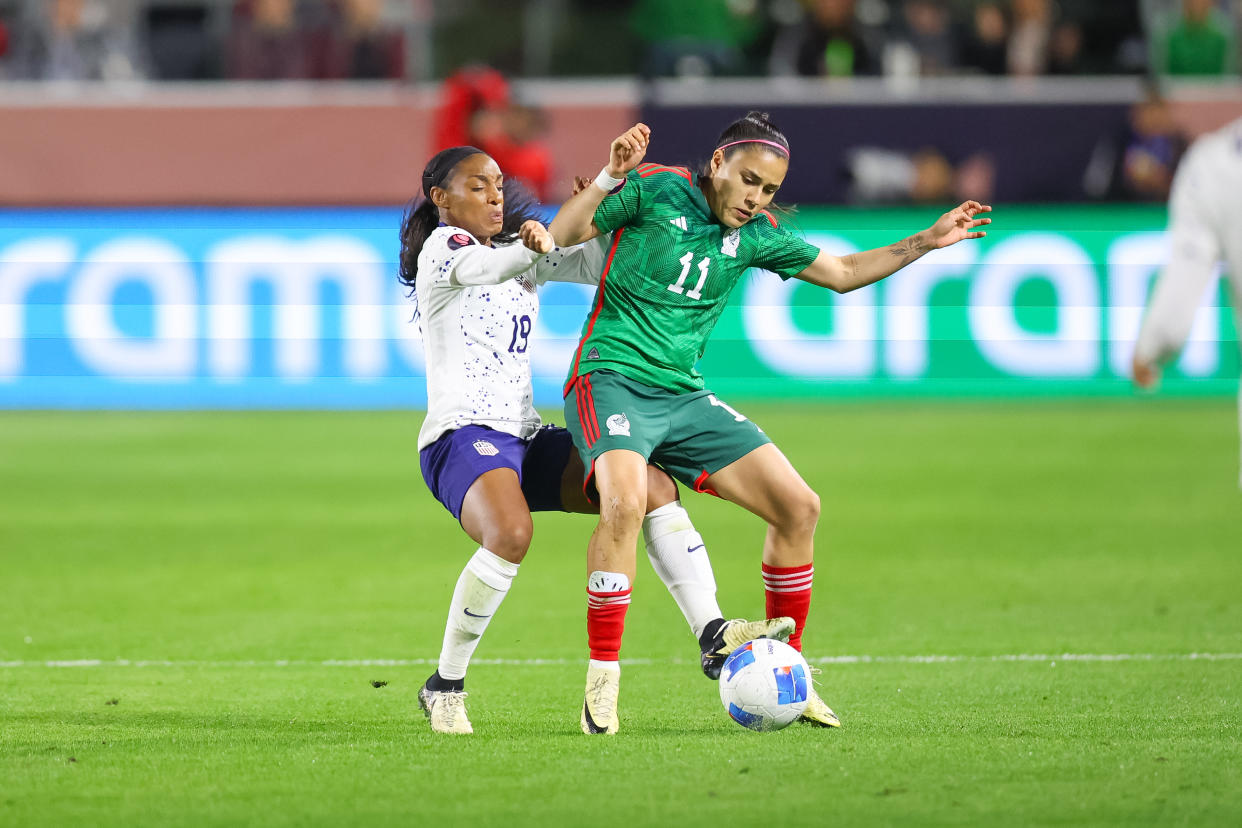U.S. Soccer, Mexico pull 2027 Women's World Cup bid, will instead aim for 2031

There had been virtually zero publicity. No globetrotting campaign. No official host city agreements. And so, with a FIFA vote approaching, the United States and Mexico are withdrawing their bid to host the 2027 Women's World Cup.
They will instead jointly bid for the 2031 tournament, their soccer federations said in a Monday statement.
In reality, according to multiple people familiar with the effort, they never seemed all-in on 2027. One described their bid as "absent." Another told Yahoo Sports: "I cannot imagine how they could [win]."
Their formal withdrawal leaves two candidates for the 2027 tournament: Brazil and a joint bid from Germany, Belgium and the Netherlands. One will be chosen at the FIFA Congress on May 17.
The U.S. and Mexico originally announced their intention to bid last April, and submitted written materials Dec. 8, just underneath a FIFA deadline. But their official “bid book” was largely a repurposed version of the one they submitted for the 2026 men’s World Cup several years earlier. Their “human rights strategy” was an unchanged copy, dated March 2018, with detailed material on Canada — even though Canada was not involved in the 2027 bid.
Their efforts over the months that followed were similarly half-hearted, sources said.
In 2018, when the U.S., Mexico and Canada jointly bid against Morocco for the 2026 men's World Cup, leaders from the three North American countries — including the presidents of all three soccer federations — spent months traveling from country to country, continent to continent, pitching themselves to the vast majority of FIFA’s 200-plus member associations, each of which held one vote at the decisive FIFA Congress.
In 2024, the effort was nowhere near as intense, and far more limited in scope.
Many potential Women's World Cup host cities in the U.S., meanwhile, have been focused on the upcoming men's World Cup. They have been frustrated with delays and contentious commercial negotiations for several months. Two sources indicated that no U.S. city would have agreed to similar terms for 2027. It's unclear if any had even agreed to host in 2027, if the U.S.-Mexico bid had succeeded.
In interviews last week, two officials familiar with 2026 World Cup planning said that U.S. Soccer had hardly even engaged with local authorities regarding the 2027 World Cup, beyond surface-level conversations. They also indicated that they would prefer a run for 2031 instead.
"There's still so many unknowns that we have on '26," one said. "We don't know what we would want to do in '27, or what our layout would be ... or what the hosting parameters are."
In Monday's release, U.S. Soccer seemed to acknowledge some of these factors.
“Hosting a World Cup tournament is a huge undertaking — and having additional time to prepare allows us to maximize its impact across the globe,” U.S. Soccer president Cindy Parlow Cone said in a statement. " ... Shifting our bid will enable us to host a record-breaking Women’s World Cup in 2031 that will help to grow and raise the level of the women’s game both here at home as well as across the globe.”
The 2031 bidding process has not yet formally opened, but FIFA has said that the host will be chosen at next year's Congress, in the spring of 2025.
Potential competitors include China, South Africa, Morocco, and either Brazil or England/Great Britain, depending on the outcome of next month's vote for 2027.


